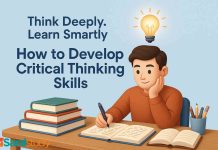Have you ever noticed that stories that stories you heard or read in childhood are still fresh in your mind. You still remember how many step sisters Cinderella had or what happened to Red Riding Hood. But mathematics formula, physics equations, and history dates have all got wiped away. This is because of the simple fact that stories do not register as formalized education, are a source of amusement, and are not forced into our system. If such could be the case with the subjects taught in school, students would generally remember better and perform well in school. A few ways on how storytelling can be made an education tool is mentioned here.
- Children are typically not tuned into remembering facts, figures, dates, etc which seem humungous and scary to the tiny brains. And they are uninteresting and forced upon. If such information can be weaved into a story with interesting characters and plot, then it automatically gains in recall value. Repetition of such stories thus helps in registering data and remembering t over a long period of time.
- When you tell a story or narrate a event from the history or English book, add expressions and gestures to it. Children have this unique capability of remembering such gestures and body movements and copying them in turn. This will therefore help them also remember the context of the said movement and expression.
- Small children are quite attached to dolls, soft toys, muppets, cartoon characters, etc. Any information passed on by these non living but close to kids sources, it typically is more readily accepted by them and registers in their mind. An apt example would be kids remembering and following what Superman or Spiderman says.
- Choose a cozy and quiet corner of the house for such sessions. It can ideally be the play room or your bedroom where you can cuddle up with your kid and make the lesson actually sound like a story. Do not intimidate the child by holding such sessions in utter silence and seriousness. Let him ask questions, react and move around. Make eye contact.
- Repeat regularly. Children take longer to create an imprint of data in the mind. Thus regular and constant reminders and repetitions is essential. You will reach a stage when your kid will tell the story all by himself.
- And let the child also imagine and use his creative instincts. Allow him to speak and share his stories or disagree with you. Listening is crucial and understanding the concerns. The message should reach him, for example the Earth is round, it resembles an orange or a guava is for him to decide.





